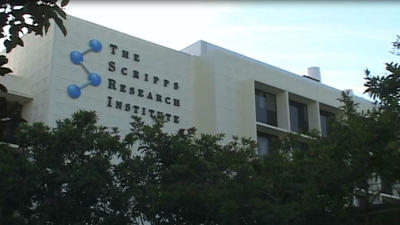The Scripps Research Institute Deploying DDN Storage
To elucidate molecular structures of HIV, Ebola, Zika and causes of major neurological diseases
This is a Press Release edited by StorageNewsletter.com on July 28, 2016 at 3:00 pmDataDirect Networks, Inc. (DDN) announced that The Scripps Research Institute (TSRI), one of the world’s largest independent organizations focusing on biomedical research, has deployed itsdata management solutions, including SFA7700X file storage automatically tiered to WOS object storage archive, to support fast analysis and cost-effective retention of research data produced by Cryo-Electron Mmicroscopy (Cryo-EM).
Responsible for creating a ‘resolution revolution,’ Cryo-EM enables scientists to create atomic-level, high-resolution 3D molecular models with unprecedented speed and accuracy. In order to accommodate the rapid capture, analysis and long-term retention of this data, DDN storage solutions were needed to provide the speed and capacity to manage the growing valuable data.
TSRI has been at the forefront of Cryo-EM, using advanced microscopes, next-gen digital cameras and sophisticated software pipelines to shed light on new treatments for Alzheimer’s, Parkinson’s, Lou Gehrig’s and Huntington’s diseases while identifying new ways to combat HIV, Ebola and Zika. DDN’s flexible storage enables TSRI to harness about 30TB of data generated each week by Cryo-EM while scaling an active archive for widespread collaboration and content distribution.
According to Jean-Christophe Ducom, HPC manager, IT services at TSRI, Cryo-EM has become the biggest producer of data, yielding four times more output than the institute’s genomics workflows.
“DDN helps us give scientists what they want-unlimited storage capacity and easy access to data that holds the secret to life-saving discoveries,” he said.
TSRI takes advantage of SFA7700X, which extracts maximum performance and value from spinning disk and flash storage media, along with the company’s WOS object storage platform to retain thousands of images for research collaboration and model re-analysis. As a result, up to 2PB of accessible storage is on hand to expedite a vast array of Cryo-EM research. Moreover, this dedicated storage foundation also enables TSRI to maximize its existing DDN storage with 700TB of capacity for handling other research, including genomics and molecular dynamics.
Thanks to its dedicated Cryo-EM storage and microscopes from FEI Company, including the powerful Titan Krios and Talos, TSRI is helping scientists respond faster to deadly outbreaks of infectious diseases. For example, the institute has taken advantage of its advanced technology to discover new Ebola-fighting antibodies and identify treatments for Zika.
Previously, using X-ray crystallography, it could take researchers a year or more to determine a protein structure and develop much-needed antibodies. With the ability to rapidly ingest, process, store, analyze and collaborate on massive amounts of data generated by their high-end Cryo-EM, they can do the same in a matter of weeks.
Additionally, scientists in TSRI’s Lander lab are using multi-scale, high-resolution 3D imaging to study the structure of dynein, a motor complex important in clearing toxic protein aggregates from neurons. By capturing dynamic snapshots of this protein complex, scientists can pinpoint molecular triggers that lead to neurological diseases.
“Cryo-EM is a complete game-changer in the world of scientific research,” said Gabriel Lander, Ph.D., assistant professor in TSRI’s Department of Integrative Structural and Computational Biology. “With our DDN-powered storage, we can accelerate time to discovery while ensuring that scientists have immediate access to decades of vital research.“















 Subscribe to our free daily newsletter
Subscribe to our free daily newsletter


